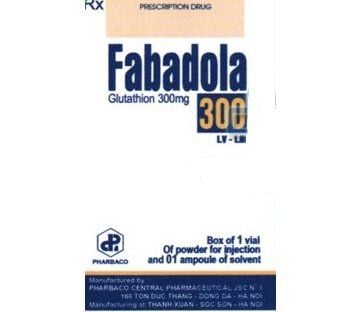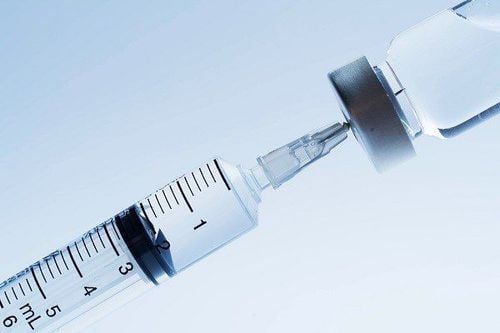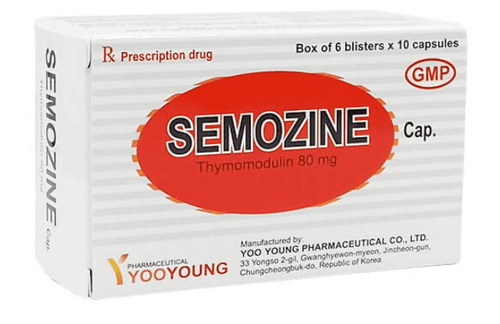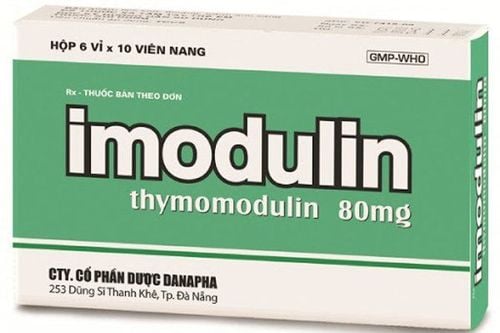This is an automatically translated article.
The immune system is a network of cells, tissues and organs that work together to protect the body from harmful pathogens. When bacteria, viruses and other germs enter a child's body, they quickly multiply and attack the body and cause illness. The body's immune system will protect the child by fighting against invading germs and vaccination is a specific active immunity measure, to stimulate the body to produce antibodies against infectious diseases.
1. How does a child's immune system work?
When your child is infected, his body relies on the immune system to fight the invading organism. White blood cells are activated and begin to produce proteins called antibodies to locate the infectious agent and launch an attack on the invading microorganisms. At this point, the microorganism may have had time to cause some symptoms. In some cases, the antibody response occurs so late that the invading organism has caused a serious or life-threatening infection. Even so, by attacking this, your child's immune system and antibodies can eventually help stave off many infections and help your child get well again.
There is another important point to keep in mind about this process. Even after the job is done, these antibodies do not go away, it remains in the blood stream always looking for the return of the same invading microorganisms. If these germs reappear, whether weeks or years later, antibodies are ready to protect the child's body. Antibodies often prevent infection completely or stop infection even before symptoms first appear. That's why if you got mumps or measles as a child, you'll never get it again, even if you've been in frequent contact with someone who has mumps.
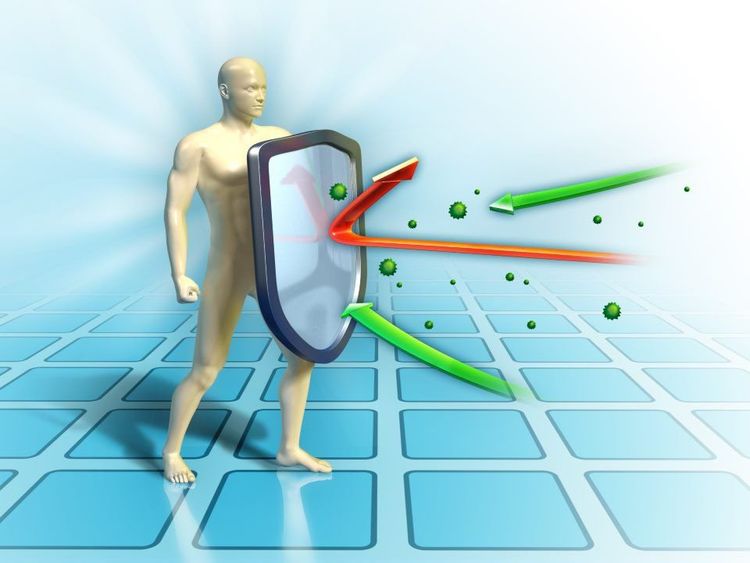
Khi con bạn bị nhiễm bệnh, cơ thể bé dựa vào hệ thống miễn dịch để chống lại sinh vật xâm nhiễm
2. How do vaccines strengthen the immune system?
Vaccines are preparations containing antigens (can be live, attenuated, or inactivated viruses or bacteria) used to stimulate the body to create immunity, specifically active, aimed at against pathogens. When vaccinated, the body's immune system detects these antigens and reacts like a real infection, stimulating the immune system to produce antibodies to neutralize the agent. pathogenic, like a natural infection. Vaccines - make the body think it is under attack and the immune system creates weapons (antibodies) to protect when an actual infection becomes a threat. After this, these antibodies remain in the body and ready to react if an infectious organism does attack.
Sometimes one dose of vaccine is enough for protection, but often more than one dose is needed. Some antibodies provide lifelong protection, but others require booster shots. For example, measles antibodies last for life, but tetanus antibodies can drop over time so you need a booster shot. Some viruses like the flu can mutate enough to render existing antibodies unable to protect the body, which is why experts recommend all people get vaccinated. apply for the flu every year.
In the early months, babies are immune to some infections because they have received antibodies from their mothers. But that immunity starts to wane during the first months of life, and babies don't get any immunity from their mothers to fight off certain infectious diseases like whooping cough and hepatitis. For this reason, mothers need to follow the vaccination schedule recommended by their doctor.
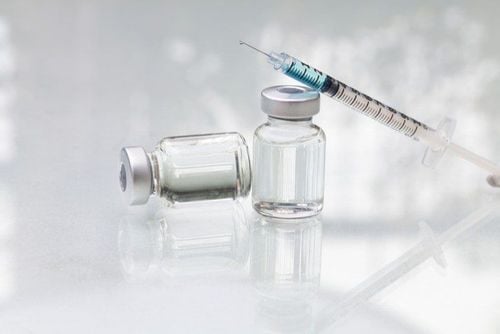
Vắc xin là chế phẩm có chứa kháng nguyên dùng để kích thích cơ thể tạo miễn dịch, đặc hiệu chủ động, nhằm chống lại tác nhân gây bệnh
2. Is “natural” immunity better?
If a child has an infection, the child's body may become immune to that infection in the future, this is called "natural" immunity.
Some people believe that natural immunity is better than vaccine immunity. But complications related to natural immunity are much higher than those caused by vaccination. Some dangerous infectious diseases can lead to serious complications or even death. For example, complications can occur when children contract measles because they are not vaccinated against measles such as acute encephalitis - meningococcal - spinal cord infection, corneal ulcer, bronchitis - lung...
National General Hospital Vinmec hospital uses high-quality vaccines with clear origin, suitable for the age to be vaccinated, ensuring safety from import, storage to use. Before vaccination, all customers are screened before vaccination with specialist doctors to ensure the best health when vaccinated. 100% of vaccinated customers are monitored and re-evaluated before leaving. In particular, the post-vaccination monitoring room is fully equipped with emergency facilities; the team of doctors - nurses are trained in anaphylaxis emergency management to ensure timely and correct treatment when an incident occurs.
Please dial HOTLINE for more information or register for an appointment HERE. Download MyVinmec app to make appointments faster and to manage your bookings easily.
References: Vaccines.gov and Healthed.govt.nz



